Related Research Articles

Carousel is the second musical by the team of Richard Rodgers (music) and Oscar Hammerstein II. The 1945 work was adapted from Ferenc Molnár's 1909 play Liliom, transplanting its Budapest setting to the Maine coastline. The story revolves around carousel barker Billy Bigelow, whose romance with millworker Julie Jordan comes at the price of both their jobs. He participates in a robbery to provide for Julie and their unborn child; after it goes tragically wrong, he is given a chance to make things right. A secondary plot line deals with millworker Carrie Pipperidge and her romance with ambitious fisherman Enoch Snow. The show includes the well-known songs "If I Loved You", "June Is Bustin' Out All Over" and "You'll Never Walk Alone". Richard Rodgers later wrote that Carousel was his favorite of all his musicals.

Mamma Mia! is a jukebox musical written by British playwright Catherine Johnson based on songs recorded by Swedish group ABBA and composed by members Benny Andersson and Björn Ulvaeus. The musical's title is taken from the group's 1975 chart-topper "Mamma Mia". Ulvaeus and Andersson were involved in the development of the show from the beginning, while singer Anni-Frid Lyngstad was involved financially in the production and also appeared at many of the premieres around the world.

Mary Ellis was an American actress and singer appearing on stage, radio, television and film, best known for her musical theatre roles, particularly in Ivor Novello works. After appearing with the Metropolitan Opera beginning in 1918, she acted on Broadway, creating the title role in Rose-Marie. In 1930, she emigrated to England, where she gained additional fame and continued to perform into the 1990s. She also became known for film roles, including in The 3 Worlds of Gulliver in 1960.

Yvonne Printemps was a French singer and actress who achieved stardom on stage and screen in France and internationally.

Dame Mary Susan Etherington,, known professionally as Marie Tempest, was an English singer and actress.
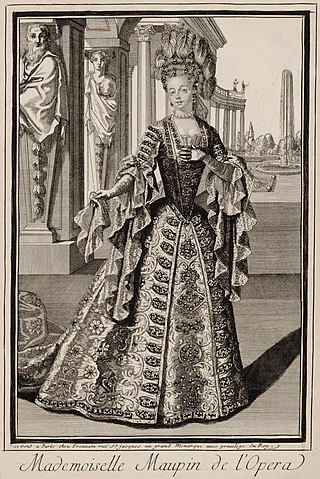
Julie d'Aubigny, better known as Mademoiselle Maupin or La Maupin, was a French opera singer. Little is known for certain about her life; her tumultuous career and flamboyant lifestyle were the subject of gossip, rumour, and colourful stories in her own time, and inspired numerous fictional and semi-fictional portrayals afterwards.
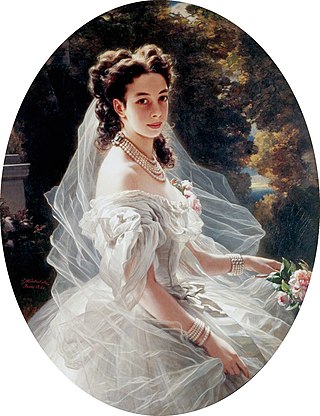
Pauline Clémentine Marie Walburga, Princess of Metternich-Winneburg zu Beilstein was an Austrian socialite, mainly active in Vienna and Paris. Known for her great charm and elegance as well as for her social commitment, she was an important promoter of the work of the German composer Richard Wagner and the Czech composer Bedřich Smetana. She was also instrumental to the creation of the haute couture industry.

The Geisha, a story of a tea house is an Edwardian musical comedy in two acts. The score was composed by Sidney Jones to a libretto by Owen Hall, with lyrics by Harry Greenbank. Additional songs were written by Lionel Monckton and James Philp.
Julie Marie Berman is an American actress. She is known for her role as Lulu Spencer on the ABC Daytime soap opera General Hospital, for which she received three Daytime Emmy Awards, and for her role on the Golden Globe nominated Hulu comedy series Casual as Leia, Valerie's receptionist.

George Joseph Edwardes was an English theatre manager and producer of Irish ancestry who brought a new era in musical theatre to the British stage and beyond.

Sarah Magdalena Biasini is a French actress, the daughter of actress Romy Schneider and her second husband and former private secretary Daniel Biasini.
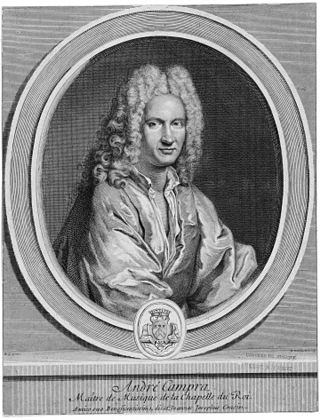
Hésione is an opera by the French composer André Campra. It takes the form of a tragédie en musique in a prologue and five acts. The libretto, by Antoine Danchet, is based on the Greek myth of Hesione and Laomedon.

Marie Le Rochois was a French operatic soprano who belonged to the Académie Royale de Musique. She is often referred to as Marthe Le Rochois or simply La Rochois.
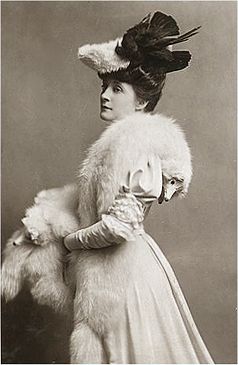
Kate Ellen Louisa Cutler was an English singer and actress, known in the late nineteenth and early twentieth centuries as an ingénue in musical comedies, and later as a character actress in comic and dramatic plays. She is possibly best known for walking out of the lead role in Noël Coward's The Vortex in 1924 shortly before opening night.

Henriette Adélaïde Villard or Henriette-Adélaïde de Villars, known under the stage name of Mlle Beaumesnil, was a French opera singer and composer.
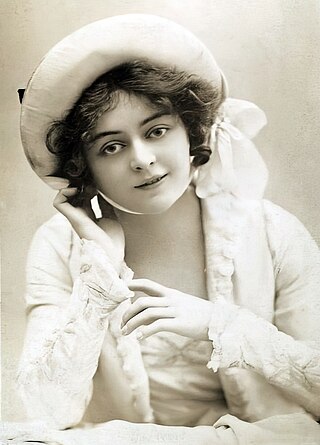
Adrienne Adele Augarde was an English actress and singer popular for nearly a decade on both sides of the Atlantic Ocean, primarily for her roles in Edwardian musical comedy.

Valentine d'Aubigny is an opéra comique in three acts composed by Fromental Halévy to a libretto by Jules Barbier and Michel Carré. It premiered in Paris on 26 April 1856 at the Théâtre de l'Opéra-Comique. The comic story is set in Fontainebleau and Paris at the beginning of the 18th century and revolves around mistaken identities and the machinations of the Chevalier de Boisrobert and Sylvia, an actress at the Théâtre-Italien, who try but ultimately fail to prevent the marriage of Gilbert de Mauléon and Valentine d'Aubigny.

Anastasia is a musical play with music and lyrics by Lynn Ahrens and Stephen Flaherty, and a book by Terrence McNally. Based on the 20th Century Fox Animation 1997 film of the same name, the musical adapts the legend of the Grand Duchess Anastasia Nikolaevna of Russia, who was rumored to have escaped and survived the execution of the Russian Imperial family. Many years later, an amnesiac young woman named Anya hopes to find some trace of her past by siding with two con men, who wish to take advantage of her resemblance to Anastasia.
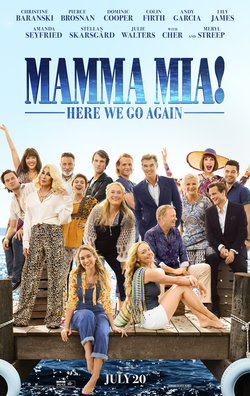
Mamma Mia! Here We Go Again is a 2018 jukebox musical romantic comedy film written and directed by Ol Parker, from a story by Parker, Catherine Johnson, and Richard Curtis. It is the sequel and prequel to the 2008 film Mamma Mia!, which in turn is based on the 1999 eponymous musical using the music of ABBA. The film features an ensemble cast, including Christine Baranski, Pierce Brosnan, Dominic Cooper, Colin Firth, Andy García, Lily James, Amanda Seyfried, Stellan Skarsgård, Julie Walters, Cher, Meryl Streep, Alexa Davies, Jessica Keenan Wynn, Josh Dylan, Jeremy Irvine, and Hugh Skinner. Both a prequel and a sequel, the plot is set after the events of the previous film, and is intersected with flashbacks to Donna's youth in 1979, with some scenes from the two time periods mirroring each other.
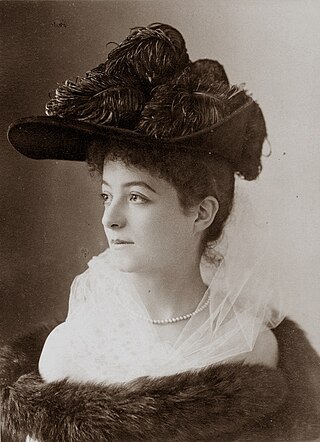
Juliette Nesville was the stage name of Juliette-Hortense Lesne, a French singer and actress in operetta and musicals, who made most of her short career in London, after early success in Paris and Brussels.
References
- ↑ "Le Gasp! Productions". Le Gasp! Productions. Retrieved 2024-06-25.
- 1 2 "Interview with Abey Bradbury of JULIE: The Musical". www.culturecalling.com. Retrieved 2024-06-25.
- ↑ "Bustles & Broadswords: Julie d'Aubigny aka La Maupin on Apple Podcasts". Apple Podcasts. Retrieved 2024-06-25.
- ↑ "2024 Finalists & Winners". The Offies. Retrieved 2024-06-25.